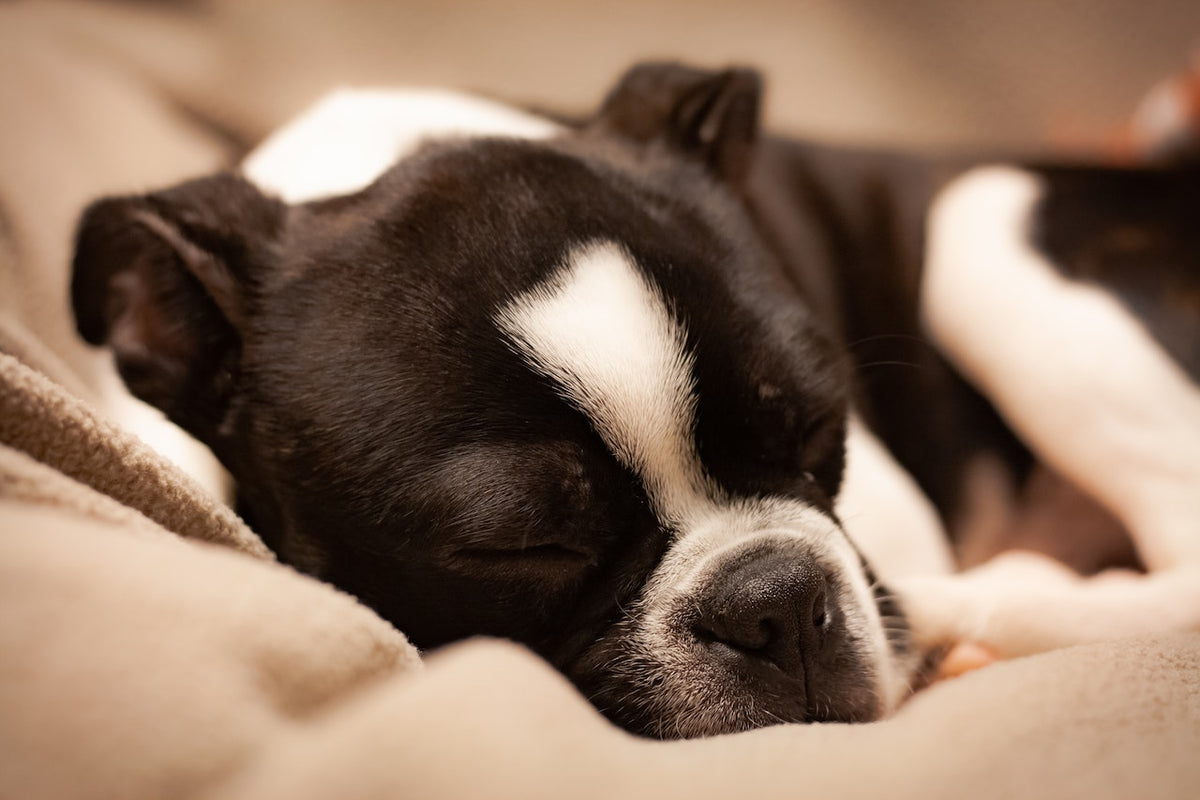
When your furry companion needs surgery, it can be stressful for you both.
Just like humans, pets need proper care and attention after surgery to make a full and speedy recovery. Caring for your pet post-op requires a combination of patience, love, and practicality.
Your veterinary team should provide you with essential post-surgical instructions, but there are some additional steps you can take to ensure your pet's comfort and safety.
Below, we'll share what to expect post-op and 5 tips to care for your pet after an operation.
Most surgical procedures require the use of an anesthetic, which is used to render your dog unconscious, so they feel no pain during the operation. Anesthetics take a few hours to wear off, so your pooch may feel drowsier than usual, slightly unsteady on their feet, or less active than normal.
These side effects are not unusual and should slowly start to wear off with time. On top of general anesthetic side effects, your dog may also experience soreness or stiffness near the incision site. Again, this is perfectly normal, and no cause for concern.
Similarly, it's not uncommon for pets to experience a temporary decrease in appetite after surgery. However, their appetite should increase again after a few days.
The most important thing you can do for your dog is to provide a peaceful and comfortable environment for them to rest and recuperate once you bring them home.
Keep the area that your dog rests in away from any children or other pets to ensure minimal disruption of their rest. Also, make sure their rest area has sufficient space for them to move about without exerting too much pressure on any bandaged or sensitive parts of their body.
Post-op, they will want to sleep a lot more than usual. Have a soft bed or pillow available for them to sleep on comfortably. A hard surface may worsen any aches and pains they might be feeling.
Also, make sure they are resting in a place with good ventilation to promote healthy airflow around the area and establish some degree of comfort if there are sudden temperature changes outside. Additionally, having several blankets on hand will help keep them warm throughout the night.
After being put under general anesthesia, loss of appetite can occur for most dogs.
Until your dog's appetite returns, offer them a light meal such as chicken and rice. Avoid store-bought dog food, which can be harder for them to digest, unless directed by your veterinarian.
Generally speaking, you can expect their appetite to return about 24 hours after surgery, at which point you can begin transitioning them back into their regular food over the course of a few days.
If you notice that their lack of appetite has not improved within 48 hours following surgery, then contact your vet or veterinary surgeon as soon as possible; this could be indicative of either pain or infection.
Caring for your pet’s incision site following a surgery or operation is vital for a speedy recovery. You must be vigilant about not letting your pup chew, bite, scratch, or lick their wound as this could lead to infection.
The best way to keep the incision site safe and reduce the risk of further injury is to use an Elizabethan collar, also known as an ‘e-collar’ or ‘cone collar.’ E-collars are typically made of plastic, in a conical shape which stops your pup from having direct access to their wound and keeps them away from any stitches they may have in place.
Additionally, you should keep their bandages dry and clean. This will help prevent infection and protect the wound site from debris or bacteria.
Monitor your dog's wounds for signs of infection such as redness or swelling or discharge. If you think your pet's incision site may be infected, talk to your vet immediately.
Like humans, your dog will feel sore near their incision site. Unlike humans, they can't tell you they’re in pain, which is why pain management is so crucial to preventing your dog from unnecessary pain following their operation.
Your vet should give you a list of medications to give your dog post-operation and instructions for administering those medications successfully. It's important that you adhere to these instructions carefully to ensure your furry companion feels well enough during their recovery without becoming reliant on them.
Veterinarians often prescribe antibiotics as a preventative measure against infection as well as pain relievers that help relieve post-surgery discomfort. Since these are very important, it is wise to ask questions if you don't understand or are unsure about a part of the instructions given.
If you need more advice on how to manage your dog's pain more successfully, be sure to ask your vet for guidance.
Natural supplements may help aid in pain relief and promote a speedier recovery for your dog after surgery.* WoundVite for Dogs is an all-natural supplement that uses natural plant ingredients like chlorella, turmeric, and nutrients like B vitamins, vitamin C, and Iron.
WoundVite for Dogs is formulated to promote healing and wound recovery.* These natural ingredients have been researched for their possible effectiveness in speeding up wound healing while reducing inflammation and infection.*
WoundVite for Dogs is not meant to act as a substitute for prescription medication but may be a helpful add-on supplement to your dog's recovery regimen.*
Caring for your pet after an operation can be difficult but knowing how to care for them properly can ease some of your stress. Keeping a watchful eye on their behaviors, monitoring their wound site, and ensuring they receive proper pain management are crucial to your dog's recovery.
Of course, you should always follow your vet's instructions and be sure to attend follow-up appointments. Refer to these tips to care for your pet after an operation to ensure your pooch heals as quickly as possible.